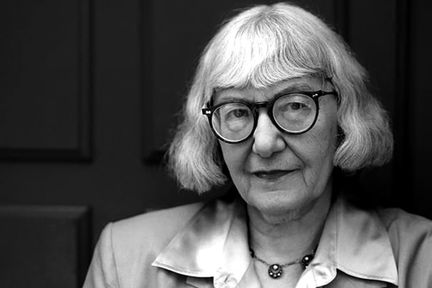On figments – Natasha Lehrer in TLS:
‘Cynthia Ozick, one of America’s greatest living authors, has produced a strange and compelling new novel called, somewhat impishly, Antiquities.’
(…)
‘It is 1949 and Lloyd Wilkinson Petrie is a retired lawyer living in an apartment in the shabbily refurbished buildings that once housed his New England prep school, along with a motley group of fellow trustees of the Temple Academy for Boys, “its various buildings having been converted for use in perpetuity as living quarters for the Trustees”. The institution’s final pupils departed thirty-four years earlier, when the school closed in the middle of the First World War. Now the building has been sold and the old men are to move on.’
(…)
‘Petrie’s linguistic pomposity (“I am told that I myself have a certain prowess in the writing of prose”) masks, or rather exposes, his deep sense of having lived a life of loss and failure, which he tries to untangle as he taps out his memoir on the Remington typewriter that once belonged to his beloved secretary and sometime mistress Peg “(now deceased)”. The most significant event of his childhood took place before he was born, when his newly married father abandoned his bride and career in the law and headed for Egypt to join a dig led by his distant cousin Sir Flinders Petrie, the real-life archaeologist who gave his name to the Petrie Museum in University College London. Lloyd Petrie has lived his entire life, it seems, in thrall to the sense that his father, and thus he, was adjacent to “this extraordinary man”. By the time he was born, the only trace that remained of his father’s brief escape from his bourgeois existence were some ancient Egyptian artefacts, including a beautiful gold ring in the shape of a scarab, which his mother never wore, and a strange bird-shaped vase that Petrie calls a “beaker”.’
(…)
‘Ben-Zion, it turns out, is the true subject of Petrie’s memoir, as he tries to recall the very words in which the Jewish boy made his “deposition” – the curious account of his descent from the ancient, stork- worshipping Jews of Egypt’s Elephantine Island, who had, as Ben-Zion claimed, “been made to disappear” from history.
It is not so much his unsettling homoerotic memories of one afternoon in Ben-Zion’s room, or the boy’s mysterious claims about his antique-trading parents (on a lifelong quest for one particular piece), that come to obsess Petrie in his old age as the way the older boy simply disappeared. Several years later, Petrie tried to find some trace of Ben-Zion through the charity he claimed had brought him to the school, but he found nothing. This is the mystery at the heart of Antiquities: not “who was this boy” but simply “was this boy?” He is as resistant to interpretation as Henry James’s figure in the carpet. Might the most remarkable person Petrie ever met perhaps have been no more than the figment of a lonely child’s imagination, his Jewishness a taunt or a challenge to Petrie’s complacent antisemitism, offering the possibility of escape to another world, as his father had glimpsed before him?’
Read the review here.
If we live in our fantasy, and I believe mostly we do, it’s probably unavoidable that our own past consists above all of figments of imagination.
A balmy afternoon, the possibility of an adventure, the suspicion that the most important events of your life took place before your birth.
In other words: how to cope with your unlived lives and the unlived lives of your parents.
